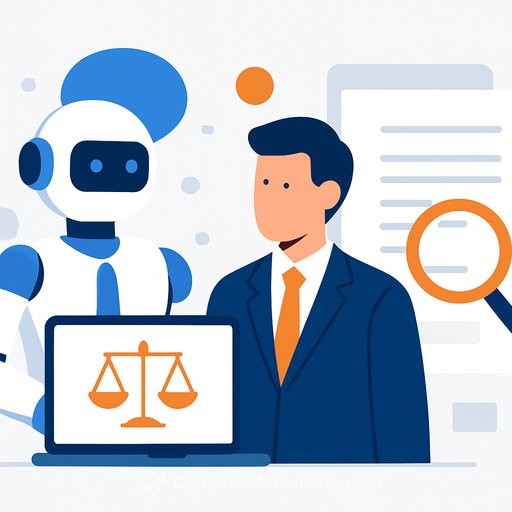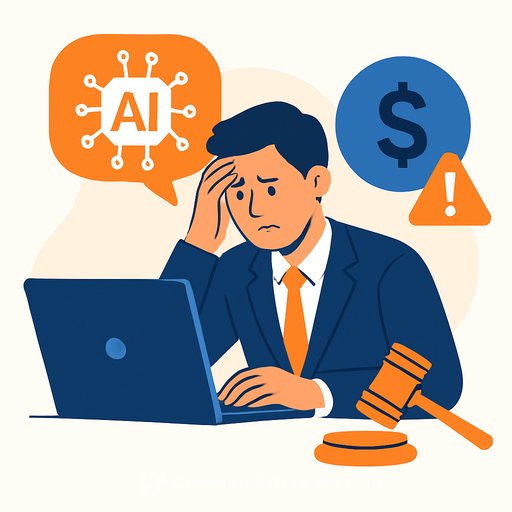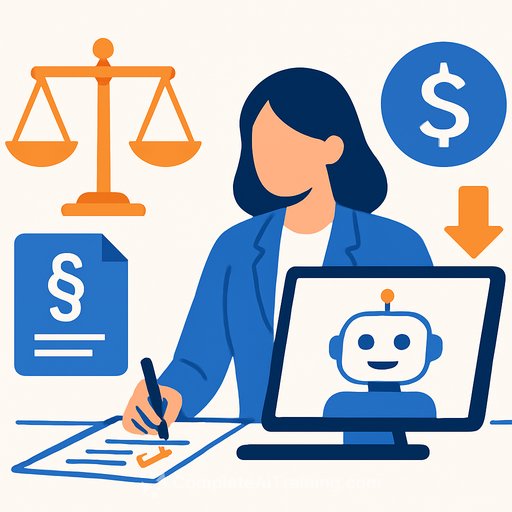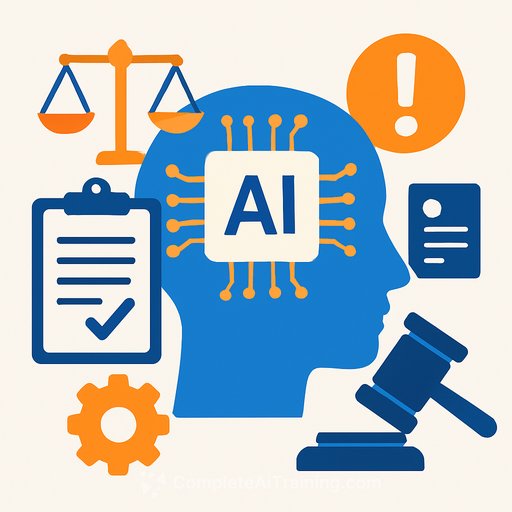5 best AI legal assistants for 2025
Legal work thrives on precision and speed. For years, that meant long research sessions, dense reviews, and endless version control. AI changed the workflow. The best tools now draft with citations, spot risk fast, and plug into the systems your team uses daily.
I analyzed 15+ platforms using G2 review data and hands-on feedback from legal teams. I looked for drafting accuracy, compliance awareness, knowledge reuse, and real integration depth. The five platforms below balance intelligence, usability, and integrity.
Note: Vendor insights and user sentiment reference G2's Fall 2025 data. Pricing and features may change.
Table of contents
- Rev - Best for AI-powered transcription and legal documentation
- Filevine - Best for end-to-end case and document management
- Everlaw - Best for litigation review and legal research analytics
- Relativity - Best for e-discovery and compliance automation
- Assembly Neos - Best for practice management and workflow automation
- Frequently asked questions
What makes an AI legal assistant worth it?
Legal teams aren't short on expertise; they're short on time. The right platform takes on summaries, clause extraction, and first drafts, then backs every step with sources and controls. That means faster filings, tighter reviews, and stronger oversight-without trading away quality.
In short: speed with defensibility. That's the bar.
How I evaluated the tools
I started with G2's Grid Report and filtered for high satisfaction and real adoption across firms, legal departments, and LegalOps teams. I then reviewed hundreds of verified reviews to see what matters in daily use, and validated patterns with practitioners.
- Accuracy and legal context: Precedents, clause interpretation, and source-linked outputs.
- Drafting and automation: Clean formatting, redlining, version history, and collaborative editing.
- Knowledge management and search: Centralized, searchable work product that's easy to reuse.
- Governance and security: Adherence to standards like SOC 2 and ISO 27001, granular permissions, encryption. Learn more about SOC 2 and ISO 27001.
- Integration coverage: DMS, case management, CLM, e-discovery, email, and collaboration tools.
- Scalability and usability: Clear roles, guided onboarding, and performance at volume.
To build AI confidence across your team, consider role-based upskilling. Explore job-specific courses at Complete AI Training.
The 5 best AI legal assistants for 2025
1) Rev - Best for AI-powered transcription and legal documentation ($14.99 per seat/mo)
Rev is a staple for hearings, depositions, and interviews. Its AI turns audio and video into timestamped, speaker-labeled transcripts in minutes. Reviewers highlight accuracy, fast turnaround, and simple editing-ideal for prep and discovery support.
Export flexibility is a win: DOCX, PDF, and TXT with timestamps and labels. Security also checks out, with SOC 2 Type II and end-to-end encryption. Accuracy can dip with noisy audio, but most users say speed and ease more than make up for it.
What I like: Fast transcripts, clean UI, flexible exports, and compliance-grade security.
What G2 users like: "I use Rev regularly to transcribe meeting recordings, interviews, and short video content... The interface is easy to use, uploads are fast... Having both automated and human transcription options gives me flexibility depending on the project's urgency and budget." - Cristian C.
What I dislike: Accuracy varies with poor audio quality; recent review volume is limited for deeper critique.
What G2 users dislike: "Automatic transcription... is not that accurate, mainly when the sound quality is not that clear... manual editing is required..." - Shruti S.
2) Filevine - Best for end-to-end case and document management
Filevine gives firms one place to run matters from intake to resolution. Teams praise the structured dashboards, deadline tracking, and auto-assigned tasks that keep work on track without busywork.
Automation stands out. Workflows trigger tasks, alerts, and reporting, while customization lets firms tailor fields, templates, and reports to their practice areas. Integrations with Outlook, DocuPost, Dialpad, Microsoft Teams, and billing systems reduce duplicate entry.
Security is strong, with permissions and encrypted storage. Some users note heavier loads can slow things slightly and that support queues can be longer after major updates. That's typical for platforms iterating at enterprise scale.
What I like: Organized matter management, deep workflow automation, and reliable integrations.
What G2 users like: "Filevine gives us the backbone to run our operations consistently and at scale... Automation, task management, and integrated reporting... have improved visibility and accountability at every level." - Donna S.
What I dislike: Heavier workloads can extend load times; support may respond slower post-release cycles.
What G2 users dislike: "Time and technical knowledge [are] required to fully build out your system... pricing typically increases in the following year..." - Rene V.
3) Everlaw - Best for litigation review and legal research analytics
Everlaw speeds document-heavy work with AI summaries, contextual insights, and evidence-linked answers. Reviewers cite fast processing and smooth handling of large matters, plus analytics that reveal patterns and relationships across data.
It covers the full e-discovery arc-ingestion, clustering, coding, and production-with a workflow that feels organized once standardized. Teams also like the training and support resources that shorten the learning curve.
New users may need time to get comfortable with deeper analytics and search setup. Once filters and naming are consistent, efficiency jumps.
What I like: AI review with source linkage, strong analytics and visualization, and performance at scale.
What G2 users like: "Everlaw... makes [advanced processes] very user-friendly... and a whole suite of generative AI features that make document review a warp-speed process." - Garrison G.
What I dislike: The advanced feature set takes practice; search feels less intuitive until workflows are structured.
What G2 users dislike: "Navigating the searches... can feel awkward... I find the tree folder method... much more efficient and user-friendly." - Tina G.
4) Relativity - Best for e-discovery and compliance automation
Relativity is a go-to for high-volume litigation data. Teams process, review, and produce millions of documents with precision, supported by tagging, batching, and filtering at scale.
AI features like predictive coding, clustering, and contextual search help reviewers prioritize what matters early. RelativityOne (cloud) improves scaling, updates, and remote access-key for distributed teams. Users appreciate clear structures and dashboards once they learn the flow, along with deep customization for coding layouts and permissions.
Very large or complex datasets can take more time to ensure completeness. Teams often tune segmentation and workflow settings to keep reviews moving.
What I like: Mature e-discovery, useful AI, cloud flexibility, and configurable workflows.
What G2 users like: "Relativity... continues to improve its features without compromising on performance... AI capabilities have sped up the review process... Import/export... and automated workflows [are] much more user-friendly..." - Madison S.
What I dislike: Heavy processing can slow at peak volume; documentation can lag behind feature evolution.
What G2 users dislike: "It's sometimes challenging to find documentation... some of the documentation is now outdated... focus on AI... for big clients..." - Margarita F.
5) Assembly Neos - Best for practice management and workflow automation ($99 per user/year)
Neos brings case management, document control, and built-in AI to smaller firms that want speed without complexity. Users report clean organization from intake to resolution, with task visibility and reminders that keep files moving.
Document storage, tagging, and retrieval are straightforward, with version tracking and linking to cut confusion. Newer AI features-NeosAI Chat, AI Document Extraction, AI Document Generation, AI Summaries, and AI Case Summaries-save hours on reviews and first drafts.
Integrations with Outlook, QuickBooks, DocuSign, and calendars reduce admin overhead. Support gets consistent praise for guided onboarding and fast help. Some users see brief slowdowns with large files or after updates, and deep customization may require assistance.
What I like: Practical AI paired with approachable case and document management for small and mid-sized firms.
What G2 users like: "Neos has completely transformed the way our [firm] operates... Their willingness to push the boundaries of AI in legal tech sets them apart..." - Boris M.
What I dislike: Performance can dip during heavy processing; specialized reporting and workflows may need expert setup.
What G2 users dislike: "The initial configuration... and user permissions was actually a time investment... the variety of possibilities to customize reporting seemed to be too much to take at first." - Christopher A.
Frequently asked questions
Q1. Which AI legal tool is best for case law analysis?
Everlaw. Its AI-assisted clustering, predictive coding, and context-aware search help surface precedents and connect evidence with clear citations.
Q2. What are the top AI tools for contract review and legal research?
Filevine and Assembly Neos. Filevine streamlines drafting and review cycles; Neos extracts clauses and summarizes documents quickly.
Q3. Which AI legal assistant integrates best with document management systems?
Relativity and Filevine. Relativity connects across e-discovery and analytics; Filevine integrates with Outlook, DocuSign, Google Workspace, and more.
Q4. Which AI legal platform offers the most accurate results?
Everlaw. Reviewers point to precise summaries and search outputs with direct source references.
Q5. Which is the best AI legal assistant for law firms?
Assembly Neos for small and mid-sized practices that want all-in-one case management with built-in AI.
Q6. What is the best AI software for automating legal document creation?
Assembly Neos. AI Document Generation drafts pleadings, forms, and letters from case data.
Q7. What are the best AI tools for due diligence in M&A?
Relativity and Everlaw. Relativity's review and search help spot key terms fast; Everlaw's analytics streamline large data reviews.
Q8. What are the best AI legal assistants for compliance management?
Relativity for audit-ready workflows and governance. Filevine adds compliance tracking within tasks and documents.
Q9. What are the top-rated AI legal assistants for litigation support?
Everlaw and Rev. Everlaw handles review and case analysis; Rev delivers quick, accurate transcripts for trial prep.
Q10. Which platforms help with regulatory compliance checks?
Relativity. Its security model, traceability, and reporting support complex regulatory requirements.
The future of legal work starts with AI
These five platforms prove that AI can speed up drafting, review, and compliance while staying defensible. Everlaw and Relativity serve heavy litigation and investigations. Filevine streamlines firm workflows. Rev turns recordings into clean transcripts. Neos gives smaller firms practical AI inside everyday case work.
The consistent outcome from G2 user feedback: more speed, fewer errors, better focus on strategy. If you want your team comfortable with AI-driven workflows, explore role-based training at Complete AI Training.
Pick the tool that fits your caseload, data posture, and stack. Then let it handle the repetitive work so your team can do the legal work.
Your membership also unlocks:






